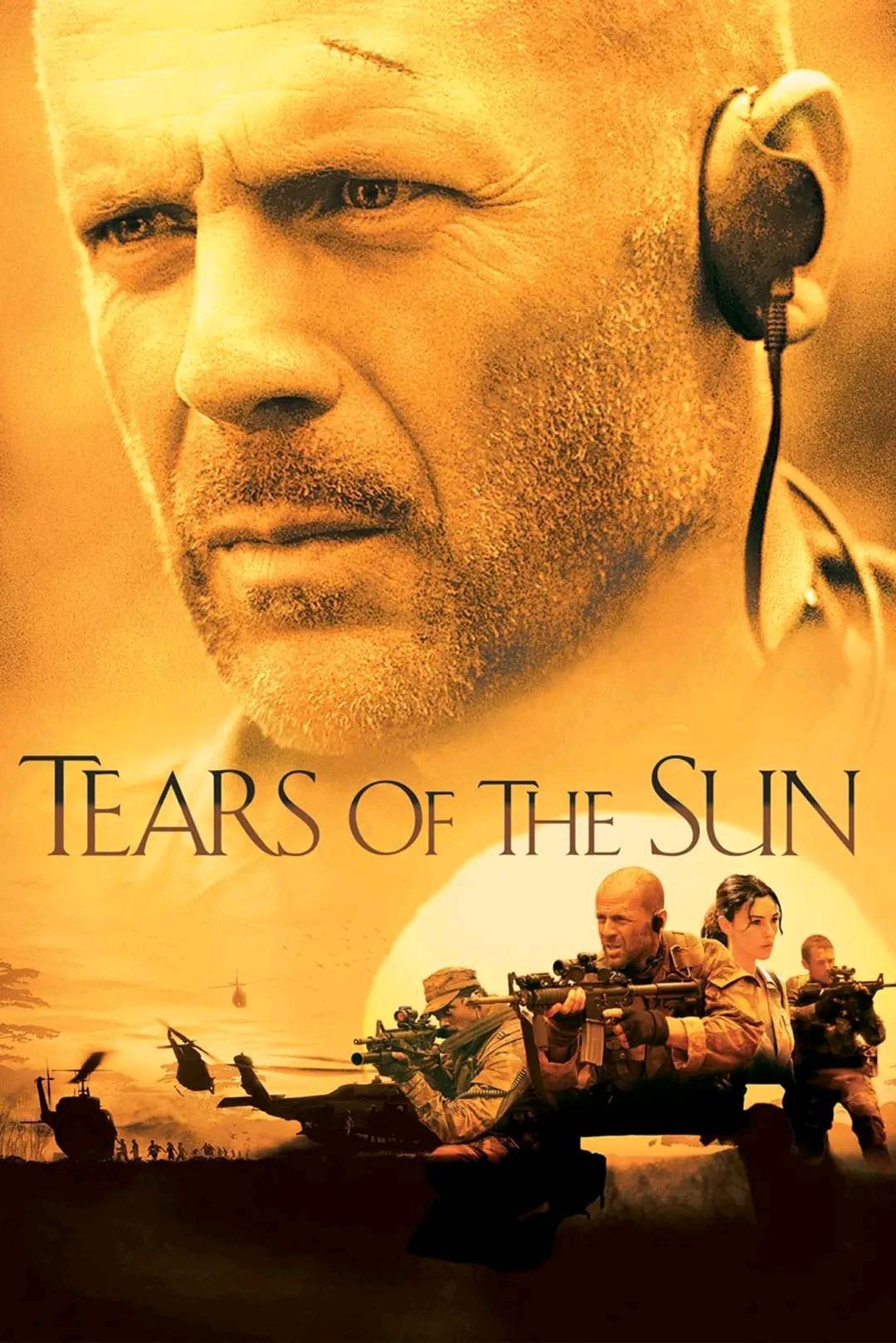Tears of the Sun (2003): A Gritty Exploration of Courage and Conscience

Antoine Fuqua’s Tears of the Sun (2003) is a gripping military thriller that combines heart-pounding action with a profound look at the moral complexities faced by soldiers in modern warfare. Known for his mastery of intense storytelling, Fuqua delivers a film that is as emotionally resonant as it is visually arresting, setting it apart in the war film genre.
Plot Overview: A Mission of Mercy Amidst Chaos
The story centers on Navy SEAL Lieutenant A.K. Waters (Bruce Willis), a battle-hardened yet principled leader tasked with a seemingly straightforward mission: to extract Dr. Lena Kendricks (Monica Bellucci), a U.S.-born physician, from the Nigerian jungle as civil war and ethnic cleansing devastate the region. However, Dr. Kendricks refuses to abandon the refugees in her care, forcing Waters and his team to escort a group of civilians through treacherous territory to safety.
As the SEALs witness firsthand the horrors inflicted by the warring factions, their mission evolves from one of extraction to one of protection. Waters, initially committed to following orders, faces a profound moral reckoning that challenges his perception of duty, loyalty, and humanity. The journey through the jungle becomes a crucible, testing the courage and conscience of every soldier.
Themes: The Human Cost of War
Tears of the Sun delves deeply into the ethical dilemmas of modern military operations. The film asks difficult questions about the responsibility of armed forces in humanitarian crises and explores the tension between following orders and acting on moral conviction. Through its portrayal of the SEAL team’s transformation, the story highlights the personal toll of war on both soldiers and civilians, emphasizing themes of sacrifice, compassion, and redemption.
Performances and Direction
Bruce Willis delivers a compelling performance as Lieutenant Waters, skillfully balancing stoicism with vulnerability as his character grapples with the weight of his decisions. Monica Bellucci shines as Dr. Kendricks, portraying strength and determination in the face of unimaginable adversity. The supporting cast of Navy SEALs, including Cole Hauser and Eamonn Walker, brings authenticity and camaraderie to their roles.
Fuqua’s direction, characterized by a raw, documentary-like style, immerses viewers in the harrowing reality of the SEALs’ mission. The film’s cinematography captures both the lush beauty of the Nigerian jungle and the stark brutality of the conflict, creating a visceral and emotionally charged experience. Hans Zimmer’s haunting score underscores the tension and poignancy of the story, elevating its impact.
Action and Realism
The action sequences in Tears of the Sun are intense and meticulously crafted, reflecting Fuqua’s commitment to realism. The tactical maneuvers of the SEAL team, their weapons, and their interactions showcase the authenticity that Fuqua aimed for in depicting military operations. These scenes are not just thrilling but also serve to amplify the emotional stakes, as each skirmish brings the team closer to their ultimate test of resolve.
Reception and Legacy
Upon its release, Tears of the Sun received praise for its performances, direction, and exploration of moral themes, though it sparked debate about its portrayal of U.S. military intervention. Over time, the film has been recognized for its thought-provoking narrative and remains a standout in the war film genre, appreciated for its balance of action and human drama.
Conclusion
Tears of the Sun is more than just a war movie—it’s a meditation on the ethical challenges of combat and the human cost of conflict. With powerful performances, intense action, and a story that resonates on both emotional and philosophical levels, the film leaves a lasting impression, inviting viewers to reflect on the complexities of courage, duty, and humanity in the face of unimaginable horrors.











